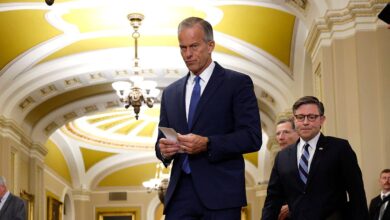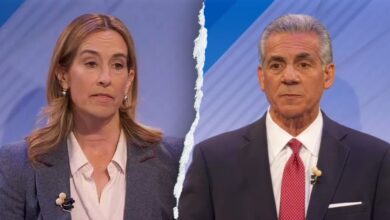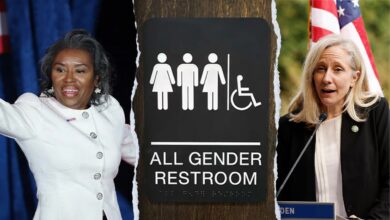Is Trump trying to topple Maduro with a pressure campaign on Venezuela?
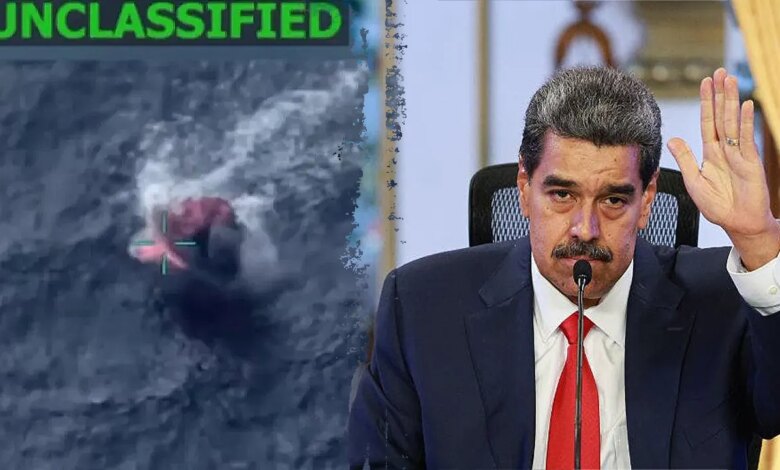
NEWYou can now listen to Fox News articles!
Publicly, the White House says the latest strikes in the Caribbean target cartel infrastructure. Privately, some analysts suspect the campaign is calibrated for something else: weakening the grip on power of longtime U.S. foe Nicolás Maduro.
President Donald Trump is stepping up pressure on the Venezuelan regime, striking four boats in the Caribbean Sea linked to Caracas-linked drug trafficking networks in the past month. Along with these strikes, the United States repositioned three destroyers, an amphibious assault ship, a nuclear-powered attack submarine, and a squadron of F-35s to Puerto Rico — a deployment that prompted a question in Washington and across the region: Is the United States preparing for all-out war against Caracas?
So far, defense analysts say that seems unlikely. A ground invasion would require many more troops than are currently in theater – between 50,000 and 150,000 by some estimates.
Some 10,000 troops have been repositioned in Latin America, a senior defense official said. New York Times.
WAR ON CARTELS? WHITE HOUSE SAYS IT HAS AN IRON BUSINESS TO HIT NARCO-TERRORIST GROUPS
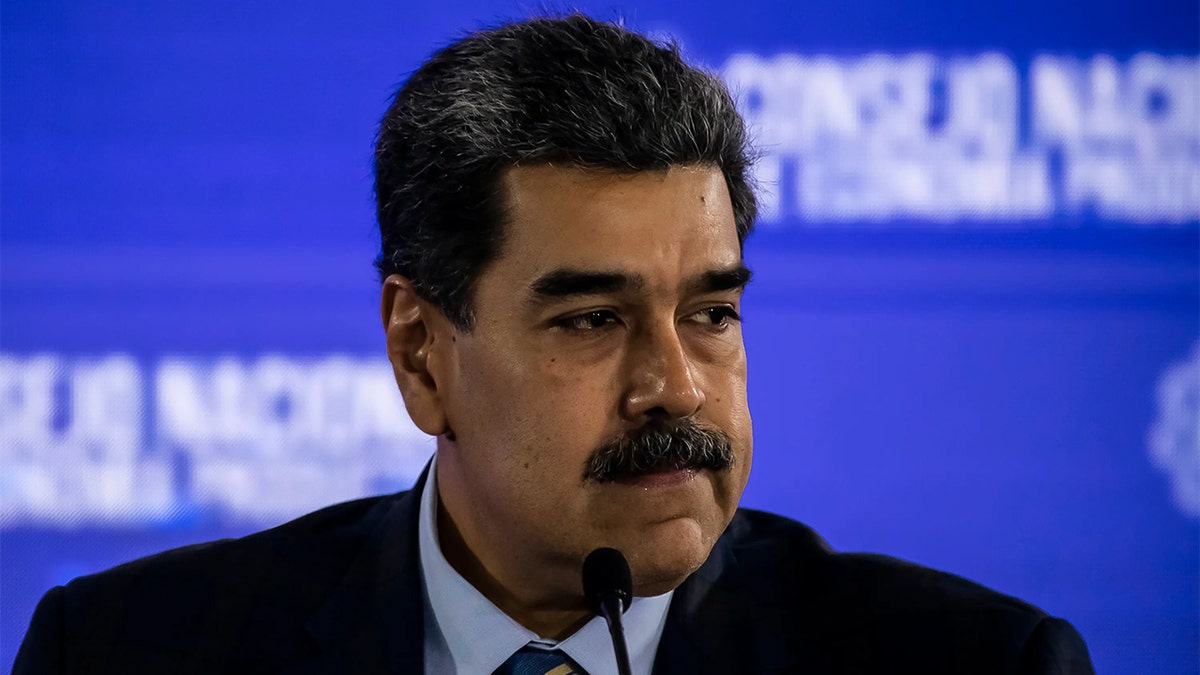
Some analysts suspect the anti-drug campaign is calibrated for something else: weakening the grip on power of longtime U.S. foe Nicolás Maduro. (Carlos Becerra/Getty Images)
“The United States just doesn’t have enough forces there,” said Mark Cancian, a senior defense adviser at the Center for Strategic and International Studies. “What I think they have in place is the ability to launch strikes either against the cartels or against the Maduro regime. If I had to bet, it’s probably against the cartels, but I wouldn’t rule out something against the regime.”
This limited but flexible posture reflects what some experts call a modern form of coercive diplomacy.
“It feels like we’re in the throes of a 21st century version of gunboat diplomacy,” said Brandan Buck, a foreign policy analyst at the Cato Institute. “The Trump administration is doing what it can to force some sort of transition (of) power – from Maduro’s hands to someone else’s – without a traditional invasion.”
The pressure campaign has accelerated this year. The administration has increased the bounty on Maduro — Venezuela’s kleptocratic leader for more than a decade — to $50 million, and officials familiar with internal discussions say Trump has become frustrated with the dictator’s refusal to step down. Diplomatic activities in Caracas were reportedly suspended this week.
While the Pentagon continues to present its campaign as a fight against narcotics, the US military’s position now allows for much more. Ryan Berg, director of the Americas program at the Center for Strategic and International Studies, said Washington’s evolving approach reflects a growing willingness to confront the regime directly.
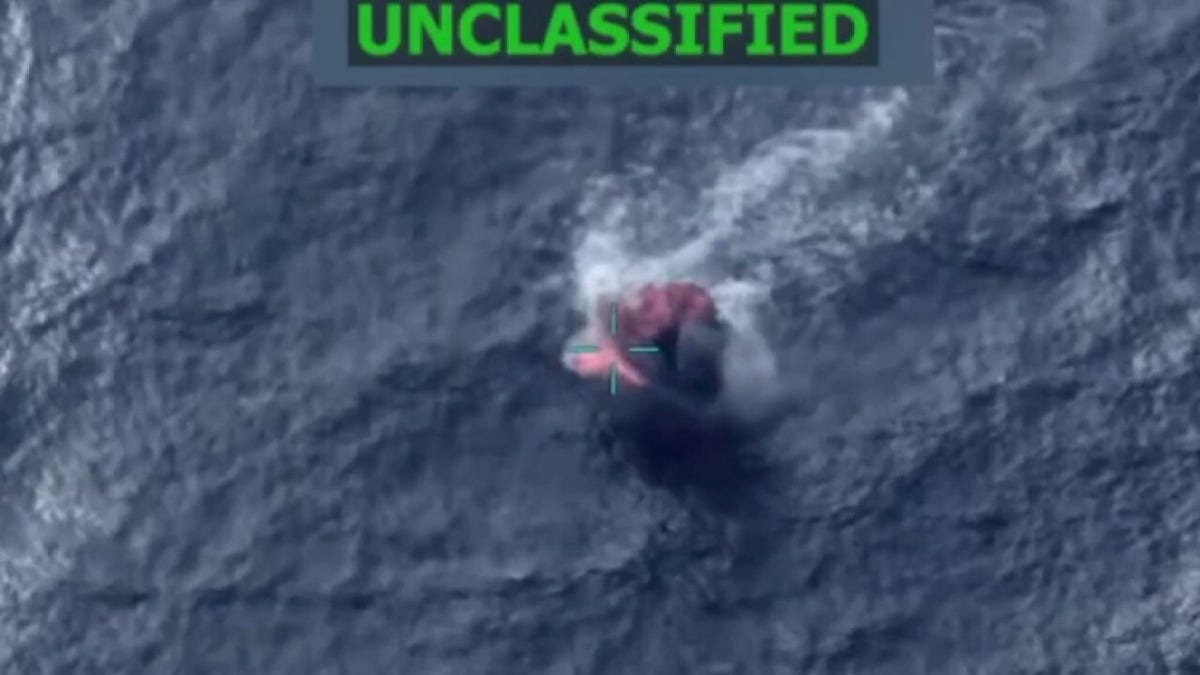
Kinetic strike destroys Venezuelan US intelligence boat linked to drug trafficking. (Trump/Social Truth)
“There appears to be a growing appetite to directly confront the Maduro regime – potentially including ground strikes in Venezuela,” Berg said. “The current force posture in the southern Caribbean is consistent with the potential for precision strikes using Tomahawk missiles or other weapons, but without risking the lives of U.S. military personnel.”
Behind the scenes, Berg noted, the administration has taken steps to prepare the legal ground for such action.
“The clearest signal yet is the legal justification for non-international armed conflict,” he said. “This tells us that the Office of General Counsel in several departments has been tasked with building the case for potential strikes.”
The White House continues to describe the operation as a homeland defense operation — stopping drug and fentanyl shipments before they reach U.S. shores — but analysts say Venezuela’s unique role in the drug trade blurs that line.
“Under Maduro, Venezuela is a criminal regime,” Berg said. “What makes this threat unique is that the regime controls state institutions – and its military – to move drug shipments and participate in other illicit economies.”
CARTEL CONNECTION: HEZBOLLAH AND IRAN EXPLOIT MADURO’S VENEZUELA FOR COCAINE MONEY
This dynamic means that targeting cartels could also destabilize the regime that depends on them. Brent Sadler, a senior fellow at the Heritage Foundation and retired Navy officer, said the cartel networks’ strike could ultimately make Maduro’s regime untenable.
“The Maduro regime depends on the cartels to maintain its bottom line and stay in power,” Sadler said. “If you weaken the cartel’s support for the regime, then the regime itself becomes unsustainable. You don’t have to go in with guns blazing, you let it collapse under its own weight.”
Cancian said the growing U.S. presence at sea and in the air “indicates that this thing could end up being bigger or lasting longer than expected.” Any strikes against the cartel’s production facilities inside the country, he added, risk repercussions on regime targets such as intelligence or defense ministries.
“They could easily attack the intelligence services or the Defense Department,” Cancian said. “That’s where things might start to fade.”
But Democrats accused Trump officials of trying to drag the United States into another war. Republican senators on Thursday blocked a Senate Democratic-led effort to limit Trump’s war powers with a resolution saying Trump does not have the authority to authorize strikes without congressional approval.
The potential for retaliation remains a wild card. Venezuela’s conventional forces are weak, but analysts warn the regime could rely on its cartel allies or proxy networks to fight back indirectly.
“Maduro could facilitate their retaliation,” Cancian said. “This could mean attacks on DEA agents or American citizens in the Caribbean. The cartels have the capacity to do this.”
So far, few regional actors seem willing to come to Maduro’s defense. Berg said even many of the regime’s neighbors would quietly welcome its downfall.
“Many would secretly be happy to see him go,” he said. “But you would expect a few voices – (President Gustavo) Petro in Colombia, (President Inacio) Lula in Brazil – to oppose the use of force.”
MADURO SAYS WE ARE SEEKING “REGIME CHANGE THROUGH MILITARY THREAT” AMID CARIBBEAN CONSTRUCTION
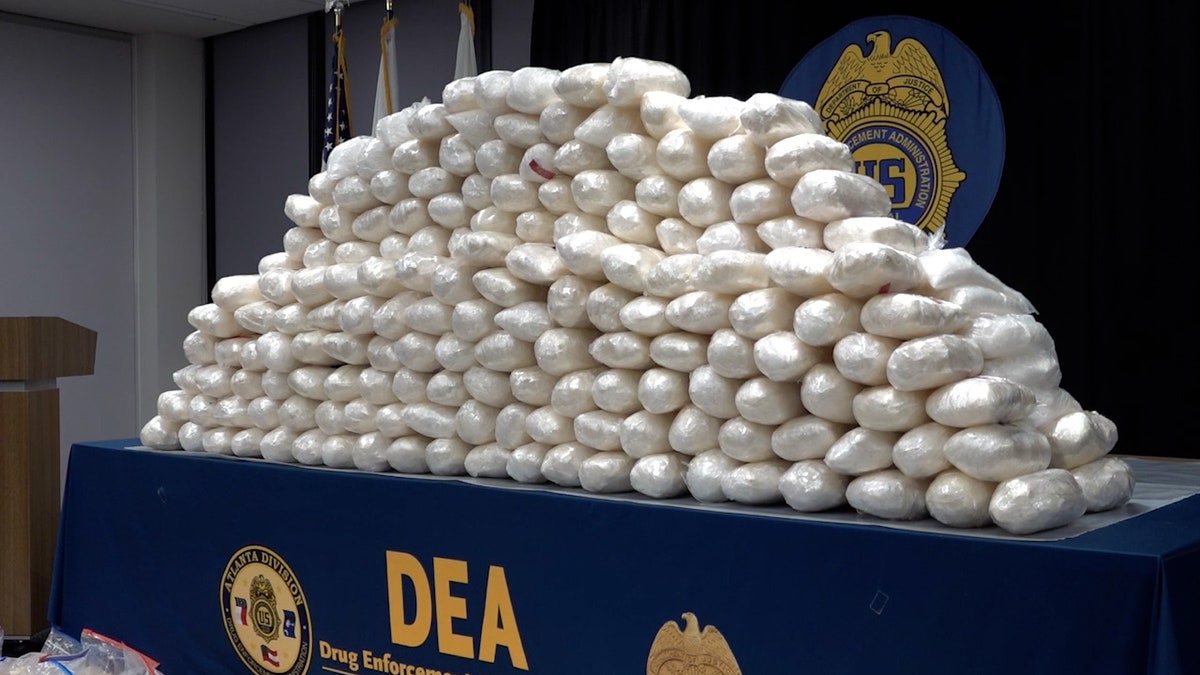
Trump officials have viewed drugs arriving in the United States as a threat to national security, as more than 100,000 people have died of overdoses in recent years. (Fox News)
Erik Suarez, a Venezuelan-born political activist, said the hemisphere was already divided on the issue.
“We can divide South America into two parts,” he said. “Lula in Brazil and Petro in Colombia are aligned with Maduro, but many others – Ecuador, Peru, Guyana and Caribbean states – view Venezuela as a major threat due to mass immigration and the spread of drug traffickers and terrorists.”
Suarez said the Maduro regime’s alliances with armed groups and terrorist networks make it not only a domestic problem but a direct threat to U.S. security.
“Venezuela poses a huge threat to national security, not only ideologically, but also to internal security,” he said. “They have issued passports to Hezbollah members and targeted dissidents abroad. Keeping Maduro in power poses a long-term danger to the United States”
This view is shared by Venezuelan opposition leaders in the United States and by many Latin Americans who fled communist dictatorships and their descendants, including Secretary of State Marco Rubio.
CLICK HERE TO DOWNLOAD THE FOX NEWS APP
Even if Washington succeeds in overthrowing Maduro, rebuilding Venezuela would pose a monumental challenge. The country’s opposition – led by María Corina Machado and the president-elect in 2024, Edmundo González Urrutia – enjoys legitimacy but faces the task of stabilizing a broken state.
“The opposition has had months to prepare to govern,” Berg said. “They are full of projects aimed at putting Venezuela back on the path to development and greater security.”
